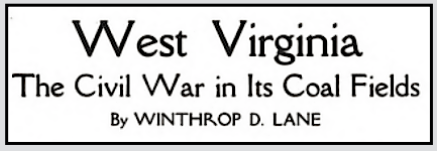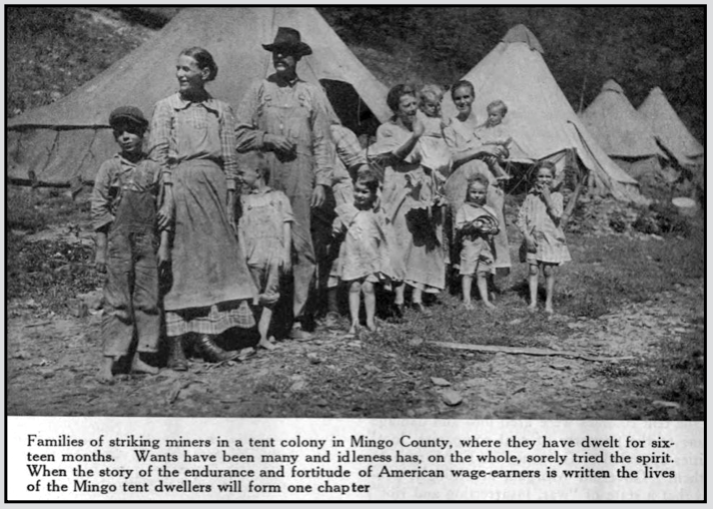 —————
—————
Hellraisers Journal – Tuesday November 1, 1921
Winthrop D. Lane on West Virginia’s Coal Field War, Part III
From The Survey of October 1921:
[Part III of III.]
What, meanwhile, has the state government been doing to bring peace and order to a situation so intense as this? For four months it has been maintaining martial law in Mingo County, for one thing. This is the third time within a year that some form of military control has been proclaimed in that strike-swept area; on the other two occasions federal troops were called in. Today the state is using its own forces, a rifle company of the national guard, which is now being reorganized. When a “three-days battle” occurred along a ten-mile front in Mingo County on May 12, 13 and 14, during which shots were exchanged by union and non-union elements, the tent colonies were fired into and damage was done to the property of coal companies, local authorities appealed to Governor E. F. Morgan to assist them. Governor Morgan, accordingly, proclaimed that a state of “war, insurrection and riot” existed in Mingo County, and directed Major Thomas B. Davis, acting adjutant-general, to proceed there and with the aid of the state constabulary and deputy sheriffs to place the region under martial law.
The legality of this procedure was assailed by the United Mine Workers of America when its members were arrested under the martial law proclamation. The state Supreme Court of Appeals held the edict invalid. The reason given by the court was that the proclamation could only be enforced by the occupancy of the zone covered by a military force, and that the state constabulary and deputy sheriffs were not a military force.


